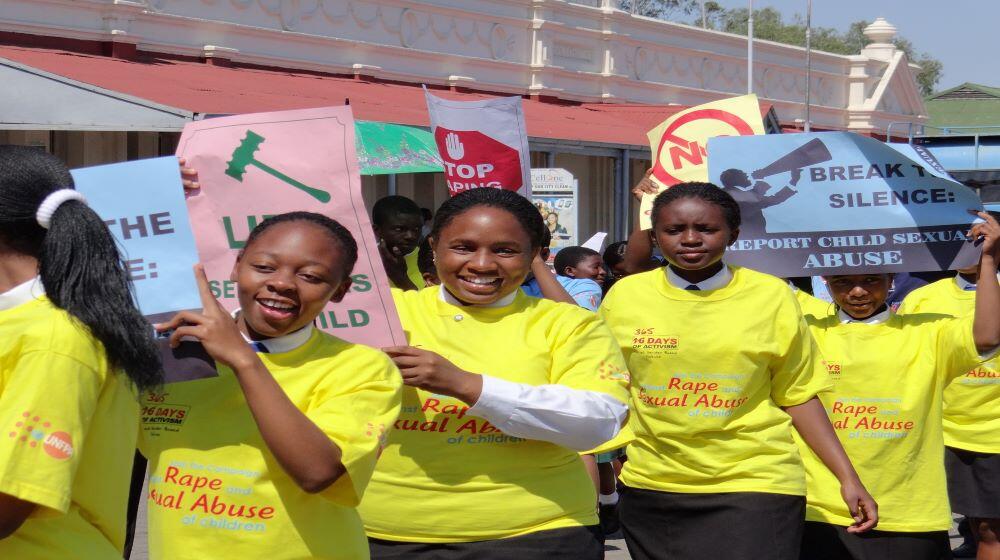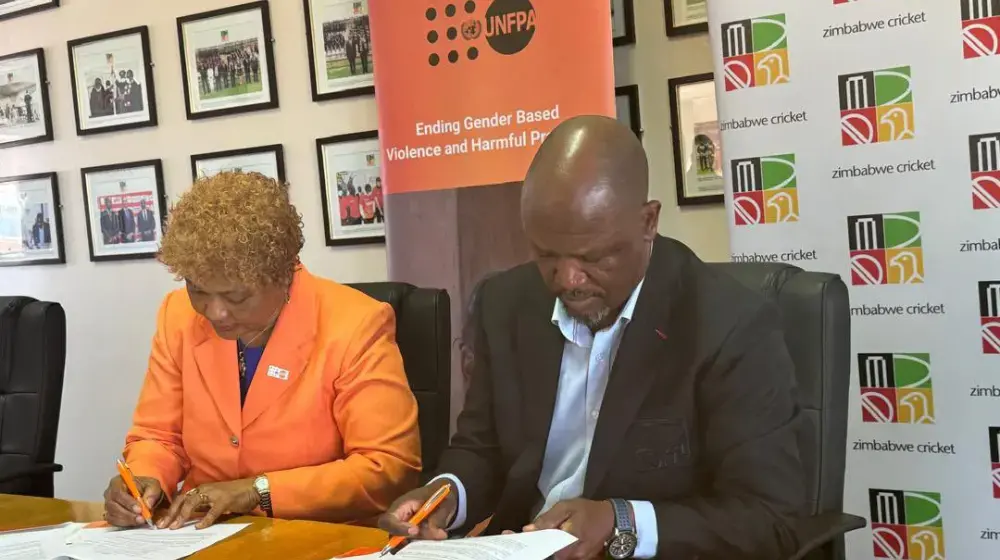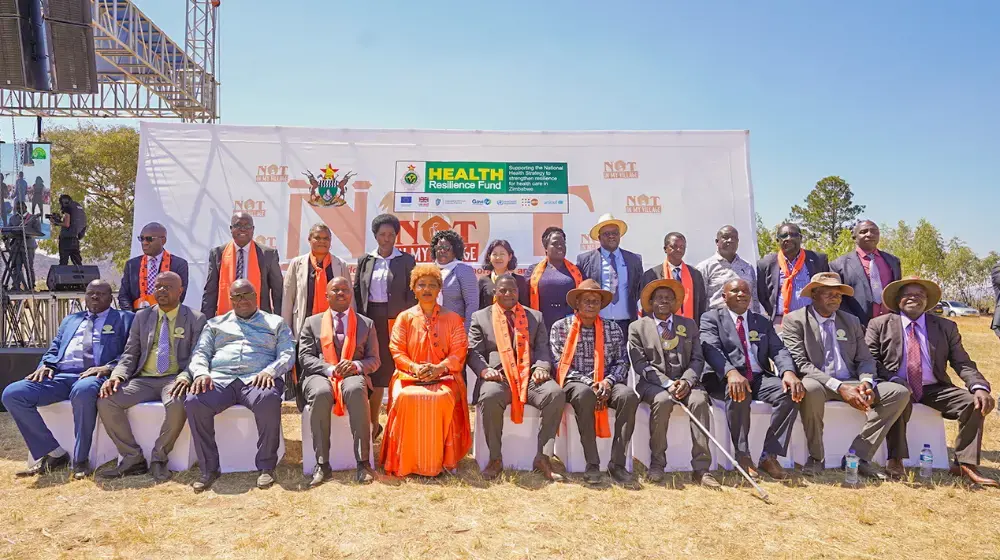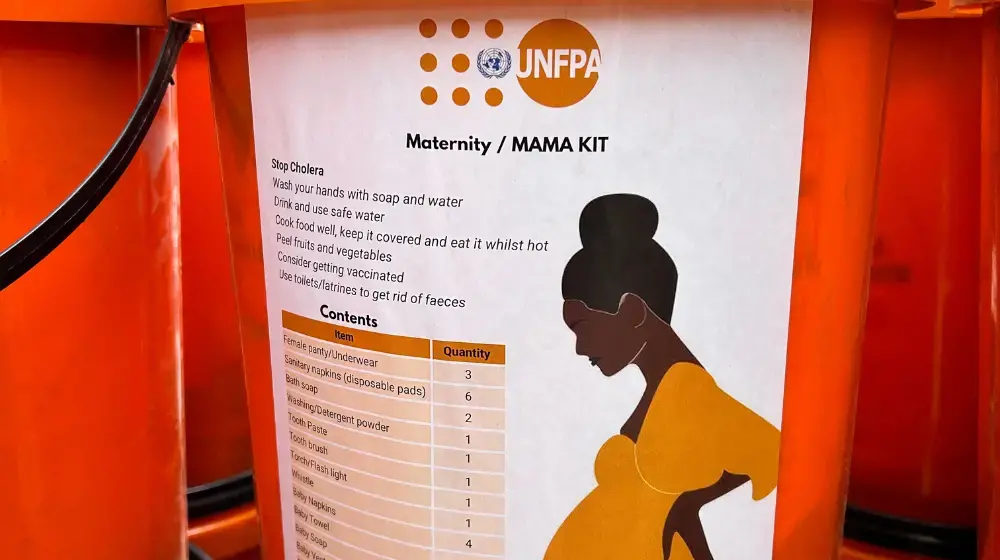Harare, Zimbabwe, 20 August 2021 – The onset of the Covid-19 pandemic since March 2021 has resulted in preventative lockdowns and movement restrictions, meant to curb the spread of the virus. Therefore, community engagement to prevent and respond to Gender Based Violence has been constrained, and innovative approaches have had to be implemented to continue community engagement.
A case is point is Makonde district, one of the districts implementing programmes under the European Union funded, Spotlight Initiative, whose aim is to eliminate violence against women and girls in Zimbabwe. Pillar three of the initiative focuses on Gender Based Violence (GBV) Prevention and addressing social norms and harmful practices at the community level. Community volunteers at the ward level engage their community through social behaviour change communication that includes community awareness activities on sexual reproductive health and rights (SRHR), GBV and Covid-19 through community dialogues.
The challenges presented by COVID-19 lockdown required innovation to ensure continuation of GBV work in the community. Behaviour Change Facilitators (BCFs) were equipped with Personal Protective Equipment (PPE) to ensure safety during community engagement. BCFs have also been provided with airtime and data to allow electronic engagement and strengthening of the GBV referral pathway. The WhatsApp platform was identified as a viable means to continue supporting the BCFs due to its instant messaging abilities which enabled virtual support to community cadres.
Family Aids and Caring Trust (FACT), one of the implementing partners under the Spotlight Initiative, clustered BCFs into WhatsApp groups mid-year in 2020. The WhatsApp groups were used to facilitate communication with district officers and within their teams/groups. In starting virtual reviews, the existing groups were the starting point and communicated information to the BCFs. Not all BCFs were on the WhatsApp platform, and arrangements were made to find fellow BCFs to share their device during the meetings. The issue of network connectivity was crucial and determined the success of using the platform. Some areas have network challenges such that BCFs had to walk long distances to access better connectivity. The use of text messages (SMS) to communicate the scheduled date, time and duration of the meetings was a more reliable platform available to most BCFs. This also gave BCFs using the sharing option time to prepare and be in an area with a good network when the meetings started. It also gave BCFs time to charge their gadgets as most use solar power for charging.
Experiences from virtual meetings with BCFs
The interaction can be in the form of written text, but some information is complex and requires explanation through a mix of voice notes and in some cases, pictures. This helps to keep both the facilitators and participants on the same page and allows for constructive feedback. In addition, the application provides for highlighting critical points by highlighting, for example, using bold wording in the written messages.
In situations where there were connectivity challenges, BCFs were encouraged to download the voice notes and pictures, to enable further clarifications to be provided after the meetings. This meant that the officers had to pay attention to calls for further clarifications after the group meetings.
The district officers have also had a learning curve and continue to improve in the organizational and management of conversations to maintain engagement. The meeting sessions cannot exceed more than an hour for effectiveness and allow the participants to balance with other tasks since they are at home.
From the BCFs’ perspectives, virtual interactions are helpful as they don’t have to travel long distances, such as Chinhoyi to attend meetings or submit reports. It also enables them to stay in touch and receive support from the district officers.
"Virtual meetings at times take too long and we have to look for places where there is better network. But we have learnt a lot through the online platforms like reporting through Kobo Collect,” said one BCF Lizzie Kadakure.
The WhatsApp platform is a valuable means to provide support and communication with community workers, especially when physical interaction is not feasible. However, the success is dependent on sufficient planning and organization to ensure that the participants are ready when required—ensuring that community workers are equipped with data, and enabled devices will ensure that all participants are on board when the meetings are done says FACT. In addition, follow up for participants without appropriate devices can be time-consuming.
This article was first published in the Spotlight Initiative bi-weekly newsletter.





